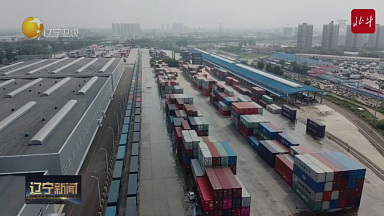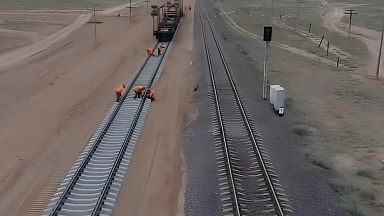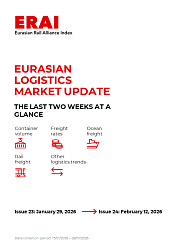For 2024, the German federal government will allocate 2.4 billion euros to expand and reconstruct railway infrastructure. The amount is higher than before; however, the already increased costs and inflation will not allow much of the budget to be used in actual projects.
«Assuming an increase in construction costs of around 20 per cent, the budget for new construction and expansion for the coming year will be 1.9 billion euros — that was the amount for 2022», says the rail freight association Die Güterbahnen. «A funding gap remains», underlined the German railway industry association (VDB).
The federal budget «We are investing more than ever in our country’s future viability. This is also possible thanks to the income from the extended truck toll. We operate solidly and have a clear focus on investments. In the transport sector, the budget is clearly committed to climate-friendly rail», commented Volker Wissing, the German federal transport minister.
The budget plan foresees investments of 11.6 billion euros by 2027. From those 11.6 billion euros, 9.4 will be invested in the railway network for various projects targeting its expansion, digitalisation and modernisation. This budget also covers the new construction work wave, which will begin in 2024 in Germany. The 9.4 billion euros budget will be divided and distributed per year. As mentioned above, the reserved funds for 2024 will be 2.4 billion euros.
The remaining funds from the overall 11.6 billion euros budget will be allocated directly to rail freight. The German government plans to use around 2.1 billion euros for the next three years to subsidise rail freight transport. For instance, the plan is to spend about 300 million euros per year in supporting single wagonload traffic.
What happens to the ‘road funds rail’ scheme? «We reaffirm the decision to cover up to 45 billion euros of the investment requirements of Deutsche Bahn, among other things, from the CO2 surcharge of the truck toll», said the German transport ministry. The plan is to allocate 15 billion euros to railway projects from this sum in the coming two years. However, it is unclear whether this will indeed happen. That is because the German transport ministry wants to provide this money but has not yet ensured this will happen.
Die Güterbahnen commented that the federal ministry should examine closely whether this is a realistic possibility, especially since such a plan is «fiercely contested» within governmental circles. As for the VDB, the association claimed that «for the federal rail network to be repaired, digitised and expanded at key points, it is urgently necessary for the federal government to provide the additional financing requirement of 45 billion euros». At the same time, it criticised the government for allocating «significantly less money than announced in the coalition decision» of late March.
A positive or negative outcome?
It is a fact that funds targeting rail will increase in Germany in the coming years. Nevertheless, as VDB says, less than three billion euros a year are far from the eleven billion euros needed yearly to maintain a stable railway network. On top of that, even with increased yearly budgets, the extra funds are at the risk of not making an impact since they will just cover inflation costs without providing more space for investments.
Die Güterbahnen claims that three to six billion euros should be available to rail annually «over the course of the 2020s to handle the growing traffic». These amounts are lower than the eleven billion euros indicated by VDB, yet far from the maximum yearly investments of the federal government that will reach 2.75 billion euros in 2028.
All in all, VDB’s general manager Sarah Stark spoke of a «rail departure that has been postponed». At the same time, Die Güterbahnen’s managing director Neele Wesseln said that «there is no place for celebration» and that the increased funds are «more of a nice gesture than bold action». The industry received the federal budget with a lukewarm reaction, and the German government should probably prioritise utilising the funds from the increased truck tolls soon so that rail will get a fair share of the funding pie. Considering that the same federal budget will fund roads with 12 billion euros a year, this is a necessity.





